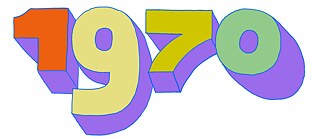Anyone who grew up in the early 80s in West Germany is sure to be familiar with both the series “Es war einmal … der Mensch” and the song “Tausend Jahre sind ein Tag”. But the song by Udo Jürgens also developed a life of its own beyond that, as part of the album “Udo ʼ80”, which despite the title was released back in 1979.
Soundtracks
With eight German-language songs from eight decades, music journalist Mario Lasar highlights important cultural and social phenomena in (West) German post-war history.
Most of the songs and artists mentioned in this series can be listened to (in the order in which they are mentioned) in a Spotify playlist: open.spotify.com/playlist/soundtracksBRD/
With the album Udo ʼ80, which was produced in cooperation with the Berlin Philharmonic, Udo Jürgens set himself the target of achieving fame as a “serious” musician. Although his songs had always been inclined to exhibit qualities that placed him closer to the chanson genre, this album seems to consolidate such tendencies once again. On the cover, Jürgens looks like a slightly jaded playboy, his face showing early signs of wrinkles. The grown-up-looking white suit he’s wearing is complemented by boyishly-coded sneakers – classic and juvenile, maturity and naivety, serenity and a thirst for knowledge, these are paradoxical pairs that characterize the song Tausend Jahre sind ein Tag.
From a composition perspective, it soars to dramatic heights in a seemingly never-ending dynamic postponement structure. The disco-ified four-to-the-floor beat drives the song on, always accompanied by a repetitive organ theme with a classic feel. A na-na-na choir adds overlaid vocals, calling upon listeners to sing along. At the exact moment when the song lyrics ask “Was ist Zeit?” (What is time?), the music develops a contemplative, psychedelic quality.
The lyrics are structured as a dialogue in which a generational conflict relating to the sociopolitical issues of the late 70s is revealed. The lines “Warum kommt jemand in Verdacht / nur weil er sich Gedanken macht?” (Why does someone come under suspicion / Just for having thoughts?) could be interpreted as a reference to the trend of “ideological spying” in the wake of the so-called Radikalenerlasse, (Radicals’ Decree), a government decision of 1972 on the basis of which applicants to the civil service were investigated to ensure loyalty to the constitution. The theory “Wer alles hat / kriegt noch Rabatt” (He who has everything / Still gets a discount) comes across almost as a left-wing statement against capitalist omnipotence, and remains unmatched in its clarity within the works of Udo Jürgens. This is countered by the supposedly sensible “adult” voice, with the response: “Ihr junges Volk, was soll denn das? / und leistet ihr doch erstmal was!” (You youngsters, what’s all this? / You should act first!). This quasi-dialectical structure culminates with the singer taking the side of the young people: “Ich bittʼ euch fragt solangʼ ihr seid / denn ihr seid die Zeit” (I beg you to ask as long as you are / For you are time).
Even if the track isn’t always represented in the canon of best-known songs by Jürgens, it is considered part of the singer’s core work. Without coming across as sycophantic, Jürgens makes himself the mouthpiece of a youth that is otherwise met only with a condescending arrogance. An established star of the West German Schlager scene – normally considered a conservative setting – is tackling social problems here, even though his job should actually involve spreading good humor in an “apolitical” way.
Yet of course Udo Jürgens is a long way from appearing extreme or radical. In fact the points addressed in the song – nuclear threat and armament (“Die schöne Lüge vom Goodwill / Das hübsche Spiel vom Overkill” [The beautiful lie of goodwill / The pretty game of overkill]), and the environment (“Die Erde ist bald ausgeraubt / Das Wasser tot, das Land entlaubt” [The Earth will soon be plundered / The water dead, the land deforested]) – align with aspects that were to play a major role in the party manifesto of the emerging Green party at around the same time. Classifying the alliance between green politics and the Schlager scene (in the broader sense) as unique was probably not an exaggeration.
Soundtracks
- 1950s: Just don’t overdo it with the freedom! (Fred Bertelmann – "Der lachende Vagabund")
- 1960s: A poetic moral portrait of class society (Franz Josef Degenhardt – "Spiel nicht mit den Schmuddelkindern")
- 1970s: An unusual alliance between green politics and Schlager hits (Udo Jürgens – "Tausend Jahre sind ein Tag")
- 1980s: Concrete and neon lights (Joachim Witt – "Der Goldene Reiter")
- 1990s: Of new possibilities (Blumfeld – "Tausend Tränen Tief")
- 2000s: When things are worth more than people (Die Goldenen Zitronen – „Wenn ich ein Turnschuh wär“)
- 2010s: Great cinema? (Helene Fischer – "Atemlos durch die Nacht")
- 2020s: A new power structure of gender roles (Christin Nichols – "Bodycount")
The publication of this article is part of PERSPECTIVES - the new label for independent, constructive, multi-perspective journalism. >>> To know more about PERSPECTIVES
05/2024
